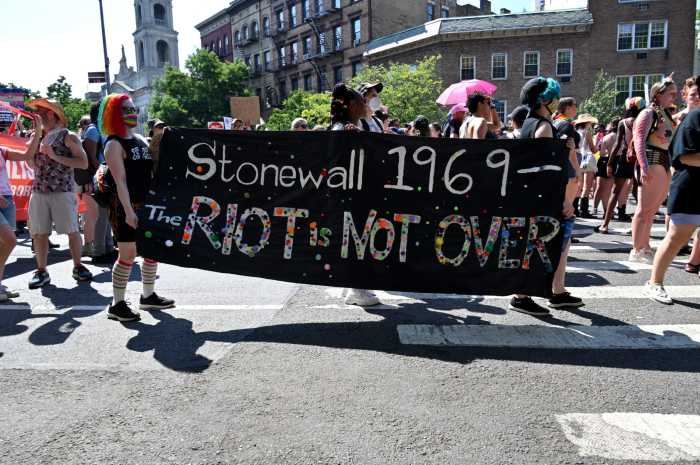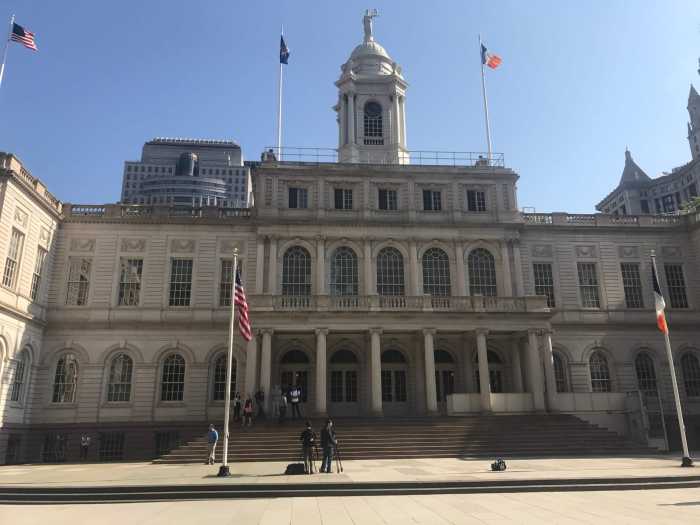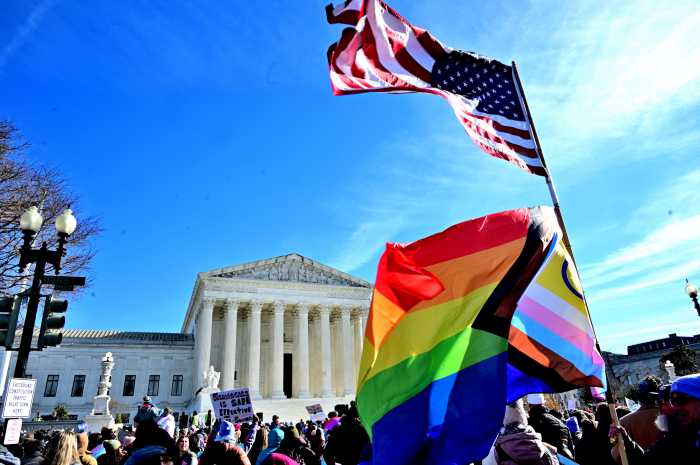 The man whose job description often has him dubbed “the leader of the free world” has announced his support for the freedom of gay and lesbian couples to marry. That’s not too grandiose a way to characterize President Barack Obama’s eloquent words during his May 9 endorsement of marriage equality. Focusing on faith, family, and country, he expressed himself in the most traditional and American of language.
The man whose job description often has him dubbed “the leader of the free world” has announced his support for the freedom of gay and lesbian couples to marry. That’s not too grandiose a way to characterize President Barack Obama’s eloquent words during his May 9 endorsement of marriage equality. Focusing on faith, family, and country, he expressed himself in the most traditional and American of language.
Careful to respond to the religiosity of gay marriage opponents by mentioning his own Christianity, he pointed to “the Golden Rule, you know, treat others the way you would want to be treated.” His teachers, however, were not only his God –– they were also US service members in uniform, members of his staff, friends, college Republicans whom he encounters when visiting campuses, his wife, and even his two young daughters, about whom he said, “It wouldn’t dawn on them that somehow their friends’ parents would be treated differently.”
In other words, the president evolved through many of the same conversations and experiences that have changed attitudes and moved hearts across the nation.
Some have noted the president only acted after a sudden three-day media frenzy erupted in the wake of Vice President Joe Biden’s “Meet the Press” appearance; he had no choice, according to the most unflattering interpretation. As Nathan Riley points out on the opposite page, that assessment misses the reality that idealism and pragmatism often live in uneasy balance with each other. Could anyone doubt that sooner or later the president would have taken the stand he did? Many news reports asserted Obama had long been discussing the move and given serious, perhaps final consideration to a plan of doing so before the election in any event. Biden, in fact, was likely aware of the president’s deliberations; when posed the question by David Gregory, he certainly knew the days of Democrats dancing on the head of a pin on gay marriage were drawing to a close.
Several voices in the blogosphere also complained about Obama’s assertion that “this is an issue that is gonna be worked out at the local level, because historically, this has not been a federal issue.” Some charged the nation’s first African-American president is falling back on a discredited state’s rights argument. As Arthur S. Leonard lays out on page 16, questions of federal and state impact on marriage are complex. States have traditionally defined marriage, and federal legislation has take up the question only once –– in 1996, with the anti-gay Defense of Marriage Act.
Federal courts, however, do play a role in ensuring that any state marriage scheme meets federal constitutional standards, as the Supreme Court did in 1967, when it struck down the remaining bans on interracial marriage. Given the administration’s conclusions about the equal protection flaws in DOMA, Leonard suggests, the Obama Justice Department could well make similar arguments in friend-of-the-court briefs when right to marry cases are brought in federal courts. We should rightly expect that of the president, but nothing he said to ABC should lead us to conclude that is unlikely.
The president’s laudable leadership stands in stark contrast to the inexplicably craven posture taken by Middlesex County Judge Glenn Berman as he sentenced Dharun Ravi in the 2010 Rutgers web spying case. Ravi used his computer camera to spy on his roommate, the late Tyler Clementi, as he shared intimate time with another man; he invited others to dial into a follow-up spying session he planned; he tweeted the humiliation visited on Clementi; he deleted Twitter and cell phone records to cover up his crimes; and he suborned perjury from the woman with whom he viewed Clementi and his guest. For that, he was convicted on 24 counts of invasion of privacy, bias intimidation, witness and evidence tampering, and evasion of apprehension.
The judge was certainly right in not sentencing the defendant to anything close to the 10 years he could have gotten, and he was also correct in recommending to federal officials that the 20-year-old immigrant from India not be deported. Still, after speaking of Ravi’s conduct in unsparingly scathing terms, noting, “I haven’t heard you apologize once,” his sentence of 30 days in jail raised the immediate question of what on earth he would say when meting out a one-year, five-year, or 10-year sentence. Despite an extended turn for the courtroom camera that beamed images around the globe, Berman handed down punishment that seemed suited to a prank, not a pattern of illegal conduct that assaulted a young man’s dignity.


































